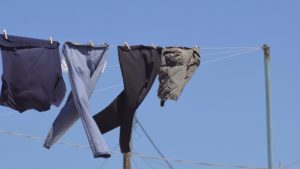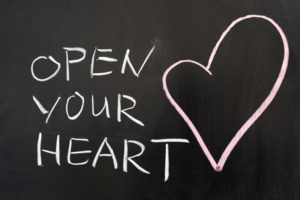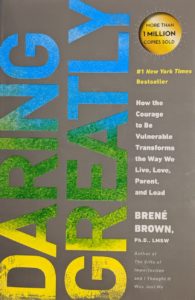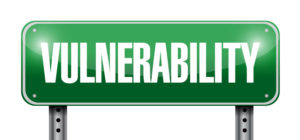Lose the Shame and Dare Greatly: Shero Brene Brown
Dear WomanPause readers. I have something personal to share. Last week, my short memoir piece “Little Secrets” was published. I should be thrilled … and I am, really, but … I’m also a bit raw. I feel naked. Exposed.
My Mother’s Words: “Don’t Air Your Dirty Laundry in Public”
Thus, if you want to write an essay in one day, you need to stick to the good old tradition and rely on all available sources. Write the conclusion of the essay yourself. The conclusion of the essay is the last thing you will need to write yourself. Here you will need to put together the introduction 250 word college essay example, the conclusions of the main part and express from this the conclusion. The volume of the work takes about 1 page. At the same time, you can not just copy the text from one chapter and transfer it to the conclusion. Try to paraphrase more and make your own conclusions. In this way, you will be able to write your own abstract.
 It’s a very personal piece about a very difficult time in my life. It cuts to the core. I was as honest and forthcoming as I possibly can be. And … I feel some shame about it. Some fear. About “it” being “out there.” About not being able to bring it back in.
It’s a very personal piece about a very difficult time in my life. It cuts to the core. I was as honest and forthcoming as I possibly can be. And … I feel some shame about it. Some fear. About “it” being “out there.” About not being able to bring it back in.
I hear my mother’s voice inside of me saying something about “Airing your dirty laundry in public.” (She didn’t think that was a good thing, by the way.)
Why is Telling Our Stories So Hard?
So, this week, I’m asking: Why is telling out stories so hard?
I know that when I do interviews, my interviewees sometimes feel the same way.
But sharing and connecting around difficult events and feelings is the stuff that makes us grow … Isn’t it? And that deep sharing opens the space for others to share and grow too … Doesn’t it?
I know in my heart and my gut and in every other cell of my body that that is the case … yet …
I still keep hearing my mother’s disapproving voice—the “laundry” voice.
The piece I wrote is about betrayal—about being betrayed. So why do I feel exposed?
When others behave badly towards us, why are we afraid to call them out? Why do we insist on carrying their shame?
I sometimes carry it.
I also know I am not the only one.
The Toxic “S” Word: Shame

There is probably nothing in this world more toxic than the “S” word—shame. And whenever I need help around shame and vulnerability, I look to one of my very favorite sheroes—the one and only Brene Brown.
Brene Brown is a PhD social work researcher who has devoted many years to studying shame, along with the related concepts of empathy, connection, vulnerability, and what she calls “Wholehearted living.”
“The Power of Vulnerability”
Brown had built a name for herself and her findings among social scientists. She’d had her share of speaking engagements, but it wasn’t until she took to the TEDxHouston stage in June of 2010 that she began to reach larger numbers of people. (If you are not familiar with Brown, please stop reading this post this second and listen to her TEDTalk! Then come back, please.)
Six months later, when the TED curators featured her talk on the main TED website, she was on her way to becoming a household name. Brown’s talk went viral. It’s one of the most-watched TEDtalks ever with close to 42,000,000 hits!
Brown Opened Our Hearts
 Brown obviously touched a collective nerve. She also opened our collective hearts.
Brown obviously touched a collective nerve. She also opened our collective hearts.
In that talk, “The Power of Vulnerability,” in her new Netflix talk “A Call to Courage,” and in all of her books, Brown lays herself bare. That’s a major reason we trust her, believe her; it’s a major reason we are willing to walk the same walk she’s walking. Brown steps into “the arena.” She makes herself vulnerable. She dares to “dare greatly.”
Daring Greatly is the title of one of Brown’s mega bestsellers. In Daring Greatly, she gives us the “whys” behind our shame-based culture and, more importantly, the “hows” of living wholeheartedly. She shares the findings of her years of exhaustive research, of speaking with thousands of people about connection—and disconnection—and about vulnerability, about love, and, yes, about shame.
Shame is Universal
One of Brown’s key findings is that shame is a universal feeling—we all experience it at one time or another. She defines shame as “the intensely painful feeling or experience of believing that we are flawed and therefore unworthy of love and belonging.”
It is the feeling that because of something we did or didn’t do, because of some failing we believe we have, some hole inside, we believe that we are not “enough.” Shame thrives in cultures of scarcity—such as ours—cultures that worship the unattainable state of perfection. In cultures of scarcity, one can never have enough … or be enough.
Another Toxic “S” Word: Scarcity
To illustrate how pervasive scarcity is in our culture, Brown quotes Lynn Twist from her book The Soul of Money “For me, and for many of us, the first thought of the day is ‘I didn’t get enough sleep.’ The next one is ‘I don’t have enough time.’”
Wow! I, for one, can definitely relate to this! I wake up most mornings feeling tired (not enough sleep), and I put so many things on my daily “to do” list that I set myself up for certain “failure” before I even begin to try (not enough time)! Does this ring a bell?
 Let’s examine what scarcity thoughts you hold. About your life … about yourself.
Let’s examine what scarcity thoughts you hold. About your life … about yourself.
How would you fill in these blanks?
- I’m not ________ enough.
- I don’t have enough ________.
How much power do these statements wield?
Enough is Literally Enough
The opposite of scarcity, Brown claims, is not abundance. It’s not having whatever it is we think we’re lacking in unlimited quantities. Rather, the opposite of “not enough” is, simply, “enough.” When we come to a place of wholeheartedness, we believe in our core that we ourselves are enough. Even with our flaws, our imperfections, we are still worthy of love and belonging. We are enough.
But what does it take to live, as Brown says, wholeheartedly? How do we get there?
Brown discovered one important difference between those of us who live from a wholehearted place and those of us who live more from shame—the wholehearted among us are those who embrace vulnerability.
Ah … that word again!
Vulnerability is NOT a Weakness!
What is Vulnerability, anyway? Here’s Brown’s definition: “uncertainty, risk, and emotional exposure.” Just reading those words can send shivers down the spine!
Being vulnerable is not easy; it takes courage. But it is exactly what’s needed if we want to stay connected. And we need to stay connected to others for our emotional survival.
 Another unfortunate consequence of living in a scarcity, perfectionist society is that vulnerability is viewed as a weakness.
Another unfortunate consequence of living in a scarcity, perfectionist society is that vulnerability is viewed as a weakness.
Let’s take a moment to think about (or write down) an example of a situation that might make us feel vulnerable.
- Would it be reaching out to a friend with whom we’ve been estranged?
- Sharing with a loved one a secret dream, one we’ve held inside forever?
- Signing up for a dance class when you think you have two left feet?
When you consider embracing the situation (or situations) that come to mind, those that would lead to feelings of vulnerability, do you think of weakness?
I would imagine that your answer is a resounding NO!
Vulnerability, in Brown’s words, “does not sound like weakness. Vulnerability sounds likes truth and feels like courage.”
When you risk being vulnerable you choose to show up, even when you’d rather hide. You go all in—not 90%, but 100. You make the decision to be yourself and to let yourself be seen.
There Are No Guarantees
One of the hardest parts about being vulnerable is that there are no guarantees. You may take the risk, endure the uncertainty, and still feel like you’ve come up empty.
- You may reach out to that friend and be rejected.
- You may share that dream and not have it validated.
- You may take that dance class and still feel like you have two left feet. (I remember taking a hip hop class in my 30s because I soooo wanted to be able to do one of those moves. The outcome wasn’t pretty. I actually fought back tears the whole class. I went to the back to try to hide but there were mirrors all around the studio—there was no escape! I did stick out the hour but, unfortunately, never went back. The “s” word—shame—took over, instead.)
But … you will have stepped into the arena, as Brown puts it. You will not have sat on the sidelines of life but will have made the choice to be engaged—even though that engagement scared you .
“Entering the Arena”
 Engagement takes courage. It is certainly not a weakness—even when the risk you take doesn’t work out the way you had hoped. And … engagement with others and with your own vulnerability is the only option if you want to live a connected, wholehearted life.
Engagement takes courage. It is certainly not a weakness—even when the risk you take doesn’t work out the way you had hoped. And … engagement with others and with your own vulnerability is the only option if you want to live a connected, wholehearted life.
I spent much of my own life hiding, not wanting to be seen. I talked a good talk but did not do very much walking the walk!
But somewhere, sometime, I decided it was enough. I decided I was enough. There are plenty of times, of course, when that feeling of being enough seems to escape me, when I fall back into shame, into all or nothing thinking (if-I’m-not-perfect-I’m-a-failure-type thinking), but those moments are fewer and farther between. Practice at making oneself vulnerable will never make one perfect, but it will make the next venture into “the arena” a bit easier.
WomanPause as Resistance!
I think of this blog, of connecting with women, an act of resistance against this cultural toxicity that worships youth and perfection. Women of our age are too often brushed aside, rendered invisible, and we too, too often, accept this view ourselves. Sometimes, oftentimes, it is we ourselves who are our harshest critics, who flood ourselves with shame.
Isn’t that fear of disconnection, of being thought unworthy, behind those negative tapes that play in our heads, the tapes we hear when put on a pair of jeans and struggle to button the top button, when we make a bad investment … when we make any painful mistake?
Shame is also related to the infamous imposter syndrome so rampant in our culture (especially among women)—the fear that our accomplishments are undeserved, and the fear that someone will discover “the truth” about us, someone will “find us out.”
But how do we move to empathy, what Brown sees as the “antidote to shame?” How do we move beyond feeling less than, not good enough—or worse—unworthy?
Brown’s “Ninja-Warrior Gremlin Moves”
Shame’s best friend is the secret. And its kryptonite is the light. Bringing our shame out into the open cuts off its air. Brown has three “ninja-warrior gremlin moves” that she uses for “shame resilience,” for when shame comes knocking at her door:
- Reach out to someone who loves you. Nothing is better (and more vulnerable) than sharing our experience with “someone who loves us, not despite our vulnerabilities, but because of them.”
- Talk to yourself the way you would talk to a friend or loved one. Tell yourself the calming, supportive words that you would easily be able to offer someone else. Brown suggests telling yourself something along these lines: “You’re okay. You’re human—we all make mistakes. I’ve got your back.’”
- Brown’s third ninja gremlin move is to “Own the story!” The beauty of owning your own story is that “you get to write the ending.”
The “S” word, shame, is alive and well in our society. It is probably alive and well inside most of us. But we can practice embracing vulnerability and, I’d add, our imperfections. We can take small—or large—steps that will allow ourselves to be seen. Really seen.
Are You Ready to Be Enough?
Submitting “Little Secrets” and saying yes to its publication was, for me, a big step. Sharing my feelings about it with you is another. I thank you all for holding that space for me.
While we may not be able to rid the world—our ourselves—of shame, we can hold a space for each other and shine a light on shame everywhere—so we can shrink it down to size.
How do you “step into the arena,” embrace your own vulnerability, embrace the fact the you are enough?
What does/will that look like for you?
What gets in the way?
Please leave a comment or send me an email with your thoughts on these questions or on anything else. I love to hear from you!
Have a wonderful week everyone! See you next Friday!
Diane



I love the idea of generating a space via this blog for women in midlife. I appreciate your effort to engage in “an act of resistance against this cultural toxicity that worships youth and perfection.” Midlife sometimes threatens to enhance feelings of vulnerability. Our task is to remember–and to remind each other of–the power of midlife. Embrace our vulnerability, as you point out, but also recognize we know ourselves better than at any other time in the past. It is Midlife Liberation.
Thanks so much for the comment, Stacy! LOVE this: ‘Our task is to remember–and to remind each other of–the power of midlife… recognize we know ourselves better than at any other time in the past.” YAY for “Midlife Liberation!”
Diane ~
I’ve been a Brene Brown fan for sometime now. You captured her and what she’s all about so well. In telling your story, you stepped into the Arena. Brava! xoA <3
Thank you so much, Annis! You’ve given me the highest compliment! XO
Congratulations on your publication and your embracing of vulnerability, Diane. My own background comes with the caveat that sharing one’s story is self indulgent and haughty: ‘Who wants to hear what you have to say about yourself? It’s what you have done that counts.’ Ugh!
Brene give us permission to be more human than that. Thank you for your wonderful blog, and again congrats on the MFA and your publication success.
Thank you, Greta, for your kind words and for sharing your own experience. My wish is for all to welcome that permission to “be more human.”
“I think of this blog, of connecting with women, an act of resistance against this cultural toxicity that worships youth and perfection. Women of our age are too often brushed aside, rendered invisible, and we too, too often, accept this view ourselves. Sometimes, oftentimes, it is we ourselves who are our harshest critics, who flood ourselves with shame.”
YES!! Thank you, Diane, for using your amazing gifts to contribute to this cultural shift. I am attempting to write a memoir about my own recovery and I know that exposed feeling you describe is in my future if I choose courage. I know I will choose courage when the time comes because brave female writers like you have saved me time and time again. I will be proud to be part of THAT pack.
Thank you so much, Sherry! Your comment really touched my heart. I love the sound of a “brave female writer” pack and would be proud to be a member too. And … I have no doubt that you will choose courage–I hear it in your words. Tell that story, loud and clear! Yay for being seen!
XOXO
This is just a beautiful, heartfelt, heart-opening post. I love everything about it. And with regard to your publication and also this post, I’m reminded of Edna St. Vincent Millay, who said something like “Any writer who wants to be published is willing to stand up in public with her pants down.” Sooo true. And sooo what? You did it. Applause! xo
Oh, Alison! Thanks so much for those words! Pants down, skirt up, naked, naked, naked! And … yes … so what?! I’m still here!!
XOXO
Diane –
Thank you for this exploration of shame. It came at a good time for me as I am in the revision stage for my memoir about experience in Freudian Psychoanalysis and sometimes wonder why on earth am I doing this? For years I didn’t even tell people I was going to analysis and I still don’t reveal very often that my appointments are four times a week. It feels shameful! But it has been the most incredible experience! I finally am getting to know myself and I am so grateful in spite of the fact that it has been the most difficult endeavor. I want my memoir to encourage others to risk doing what they desire – I always wanted to be in depth psychotherapy and learn about myself. I shudder to think that shame could have prevented me from this experience.
You know that I love your published article on ants so I won’t say more about that only to say that I am still thinking about it!
Thank you so much, Nicky! I honor your courage to embrace your vulnerability and to say “no!” to the call of your shame. Your journey is fascinating, and your memoir will truly inspire others!
Wow! Great blog! Thanks so much!
Thanks, Diann!